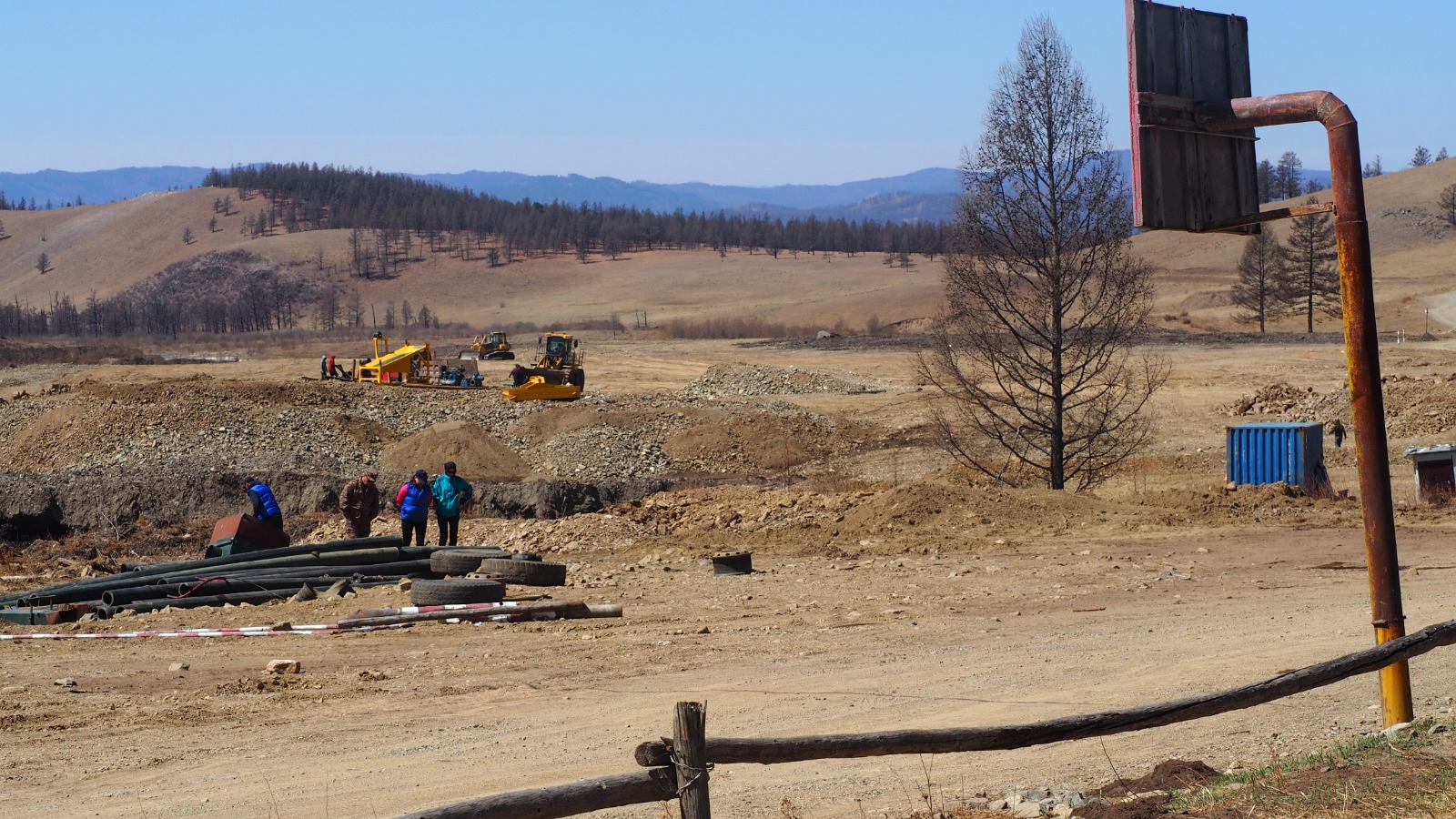
Protect the Environment, Local Communities and Human Rights in Mongolia –
Summary Statement of the Fact Finding Mission of FORUM-ASIA and CHRD to Mongolia
The Asian Forum for Human Rights and Development (FORUM-ASIA) together with its member organisation, Centre for Human Rights and Development (CHRD) conducted a Fact Finding Mission (FFM) to the eastern part of Mongolia from 5 to 10 May 2019. The FFM covered four soums (districts) in the Khentii and Dornod aimag (provinces).[1] The aim of the FFM was to look into the impact of mining operations on the environment, human rights defenders (HRDs), as well as local communities. Meetings were conducted with key stakeholders, such as representatives from mining companies, local authorities, HRDs and local communities. The FFM is a continuation of a previous mission conducted by FORUM-ASIA in Mongolia, in 2012.[2]
During the FFM, FORUM-ASIA and CHRD noted how several gold mining companies, particular the national ones, are operating in close proximity to riverbanks, especially in the areas of Binder and Batshireet Soum. There are serious concerns that such operations will lead to environmental damages, polluting water and soil, with an overall negative impact on the livelihood of the local communities. While mostly perceived as potential threats, as the mining operations have not fully started, some local authorities and communities already denounced poor quality of water and soil, increased air pollution, and a lack of meaningful involvement in the environmental impact assessment process. In light of the country’s nomadic culture, the FFM recorded instances of land overlapping between mining companies and herders’ communities, who have because of this been denied to access to the land they used for generations.
Artisanal ‘ninja’ mining[3] was identified as a key issue, when it comes to environment and human rights. ‘Ninja’ mining, small unauthorised mining operations, de facto violate all mining-related regulations. The FFM noted that ‘ninja’ mining has already caused environmental damages in the area of Batnorov Soum, including vast numbers of large holes in the pasture lands. In addition, the FFM recorded specific cases of verbal and physical attacks by artisanal miners on local authorities attempting to stop these unlawful operations. ‘Ninja’ mining is a complex issue. In addition to damages to the environment and human rights violations, they are also an indication of social and economic problems, such as poverty and unemployment, which lead large numbers of people into undertaking such risky endeavours.
Allegations of corruption were shared by different stakeholders. The FFM members received information that certain mining activities were initiated in prohibited areas according to the Law on Prohibiting Mineral Exploration and Extraction near Water Sources, Water Protection Zones and Forests. Still, mining licenses were issued by the authorities. In the case of ‘ninja’ mining, the miners often managed to get information in advance, prior to inspection by local authorities.
Overall, mining activities seem to have further polarised most of the communities visited by FORUM-ASIA and CHRD, as a result of the formation of pro and against mining factions. In the case of Tsagaan-Ovoo Soum for example, scholarships provision by gold mining company are allegedly given to community members who are pro-mining operation.
The FFM members recorded that community based HRDs, who are advocating against mining operations, are often vilified, verbally and/or physically harassed, as well as sexually harassed, when it comes to women HRDs. Threats were also documented aimed at family members and relatives of HRDs. HRDs are often labelled as troublemakers, and it is not uncommon for them to be pressurised by their own family members to stop doing their human rights work.
In light of the preliminary findings, FORUM-ASIA and CHRD urge the Government of Mongolia to guarantee the effective protection of HRDs by enacting the law on Human Rights Defenders and conduct a prompt, thorough, and impartial investigation into the harassment of HRDs. The Government should also ensure that perpetrators are brought to justice. It is crucial for the Government to ensure that business operations, in particular mining, are conducted in full compliance with national legislation and policies, as well as international standards such as the UN Guiding Principles on Business and Human Rights. We also push the Government to take concrete steps to address the root causes of ‘ninja’ mining and concurrently push for the creation of adequate legal framework for artisanal mining and ensure effective implementation of the regulations.
We call for the mining companies doing business in Mongolia to ensure that no operation leads to environmental damages, such as pollution of water and soil, nor negatively impacts the livelihood and cultural traditions of the local communities, as well as relation between community members. Mining companies should also refrain from conducting any kind of harassment against HRDs who are opposing the adverse impact of the mining operations.
Lastly, FORUM-ASIA and CHRD would like to thank all stakeholders that have agreed to speak with us during the FFM. A full report, including recommendations to different stakeholders will be written and made publicly available by the second half of 2019. The full report will also be submitted to the United Nations Special Rapporteur on the situation of human rights defenders for his upcoming report on Mongolia in June 2020.
[1] The visited areas are:
- Khentii Aimag: Binder Soum, Batshireet Soum, Batnorov Soum, and Chinggis City;
- Dornond Aimag: Tsagaan-Ovoo Soum
[2] https://forum-asia.org/?p=15662
[3] Further background of ‘ninja’ mining, can be consulted at: https://thediplomat.com/2014/04/the-ninja-miners-of-mongolia/
***
For a PDF version of this statement in English, click here.
For a PDF version of this statement in Mongolian, click here.




